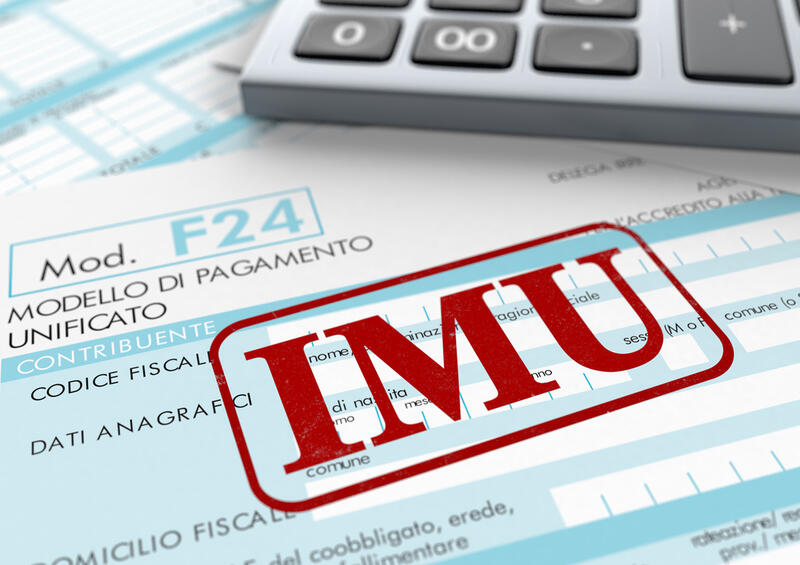
Owning a Property in Italy: Which Taxes Do You Have to Pay?
Owning a property in Italy comes with financial responsibilities, including various taxes that must be paid both at the time of purchase and annually thereafter. Understanding these tax obligations is crucial for property owners to ensure compliance and avoid unexpected expenses. Below is an in-depth overview of the main taxes associated with owning a property in Italy.
Taxes Paid at the Time of Purchase
1. Registration Tax (Imposta di Registro)
If you purchase a property from a private seller, you are required to pay a registration tax based on the cadastral value of the property. The standard rates are:
2% if you are buying the property as your primary residence (prima casa) and meet specific residency requirements.
9% if the property is a second home or an investment property.
The cadastral value used for taxation purposes is typically lower than the market price, which can result in lower taxation than expected.
2. VAT (IVA – Imposta sul Valore Aggiunto)
If you buy a new property from a developer or a company, VAT applies instead of registration tax. The rates are:
4% for a primary residence (prima casa), provided the buyer meets residency criteria.
10% for a second home.
22% for luxury properties (classified as A1, A8, or A9 in the cadastral system).
VAT is based on the declared sale price, which can be significantly higher than the cadastral value.
3. Mortgage Tax and Cadastral Tax
These taxes apply when a mortgage is involved or when registering the property in the Italian land registry:
Mortgage Tax (Imposta Ipotecaria): €50 (fixed fee) for a primary residence, or 2% of the mortgage amount if applicable.
Cadastral Tax (Imposta Catastale): €50 (fixed fee) for a primary residence, or 1% of the declared property value for second homes.
These taxes contribute to updating the official records of the property and ensuring accurate legal documentation.
Annual Property Taxes
1. IMU (Imposta Municipale Unica)
IMU is a local property tax applicable to second homes, luxury properties, and investment properties. Primary residences (prima casa) are generally exempt unless classified as luxury properties. The rate varies between 0.4% and 1.06% of the cadastral value, depending on the municipality.
IMU is calculated using a multiplier applied to the cadastral value, which varies based on property classification.
Some municipalities offer partial exemptions or discounts for specific types of properties, such as historical buildings or agricultural land.
2. TASI (Tributo per i Servizi Indivisibili)
TASI is a municipal tax that covers public services such as street lighting, road maintenance, and urban planning. Although abolished in 2020 for most primary residences, it still applies to second homes and investment properties, with rates ranging between 0.1% and 0.3% of the cadastral value.
The exact rate is determined by each municipality, and some areas may have higher contributions than others.
3. TARI (Tassa sui Rifiuti)
TARI is the waste collection tax and is mandatory for all property owners. The cost depends on several factors:
The size of the property.
The number of occupants (for residential properties).
The location and local waste management costs.
Each municipality sets its own rates, meaning TARI can vary significantly from one town to another.
Capital Gains Tax (Plusvalenza Immobiliare)
If you sell your property within five years of purchasing it, you may be subject to a 26% capital gains tax on the profit unless the property was your primary residence.
The capital gain is calculated as the difference between the original purchase price and the selling price, adjusted for documented renovation costs and inflation.
If you have owned the property for more than five years, the sale is typically exempt from capital gains tax.
Certain exemptions apply if the property was inherited or gifted.
Additional Considerations for Foreign Property Owners
Non-resident property owners must still comply with Italian tax regulations, even if they live abroad.
Italy has tax treaties with many countries to prevent double taxation on property-related income.
Rental income from an Italian property is subject to income tax (IRPEF), with deductions available for maintenance expenses.
Final Thoughts
Understanding the taxes associated with property ownership in Italy is essential for financial planning and legal compliance. Keeping up with municipal regulations and tax obligations can prevent unexpected fines and ensure smooth property management.
If you are considering purchasing or already own property in Italy, consulting with a tax professional or Notaio can help ensure compliance and optimise your tax obligations.
Need advice on property ownership in Italy? Feel free to reach out for expert assistance!
This article serves as a general guide and is not an exhaustive resource on the subject.
